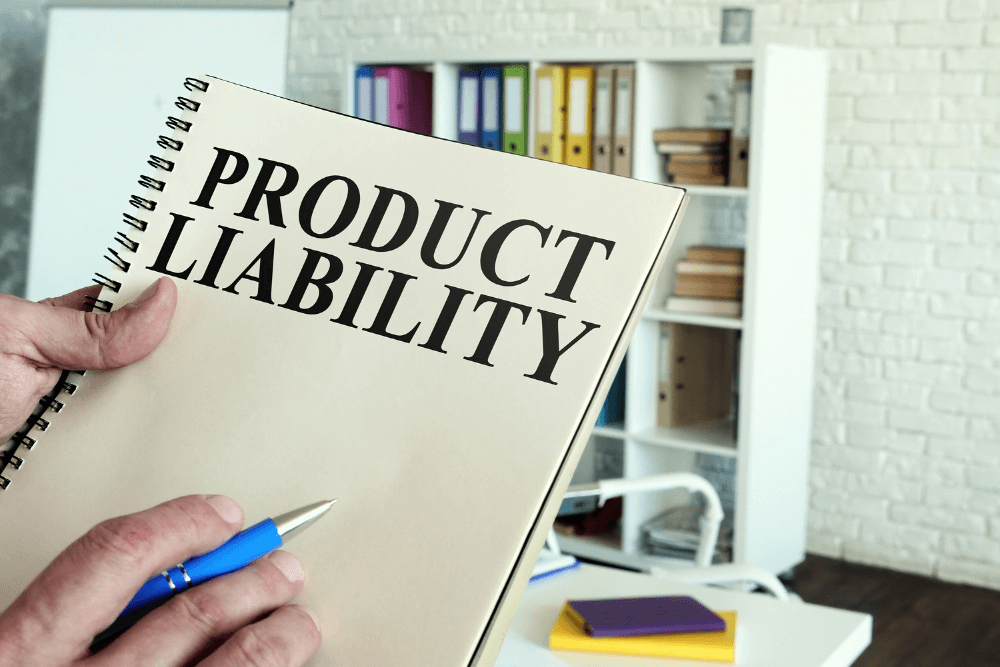The rapidly expanding cannabis industry presents unique challenges when it comes to managing product liability. As the sector continues to grow, businesses must prioritize quality control, labeling requirements, and consumer safety to protect their reputation and financial well-being. In this article, I will explore the various risks associated with product liability in the cannabis industry and discuss risk transfer strategies to safeguard businesses from claims related to cannabis products. One of the largest misconceptions I hear is that if a client is not making the product, they do not need product liability. Unfortunately, the reality in the industry is that in a product allegation, everyone through the entire supply chain could be named in a suit.
Quality Control and Labeling Requirements:
One of the key challenges in the cannabis industry is maintaining consistent product quality and ensuring accurate labeling. Product liability claims can arise if a consumer experiences adverse effects due to contaminated or mislabeled products. To mitigate these risks, cannabis businesses must implement robust quality control measures specific to what part of the supply chain.
From cultivation to manufacturing and distribution, every stakeholder should prioritize quality assurance practices. This includes regular testing for potency, contaminants, and pesticides. By adhering to rigorous standards, businesses can minimize the chances of their products causing harm to consumers and reduce the likelihood of product liability claims.
Accurate and compliant labeling plays a critical role in managing product liability risks. It’s vital for cannabis businesses to stay informed about the specific labeling requirements in their market, as laws and regulations vary across jurisdictions. Take California, for instance, where non-manufactured products have their own set of requirements, distinct from those for manufactured products. Whether it’s raw flower or gummies, each product category has its own labeling specifications.
Sadly, there have been instances where products were packaged to attract children or imitate popular snack brands. These cases highlight the deceptive packaging that misleads consumers and targets underage individuals. By ensuring proper labeling, businesses can offer transparency to consumers, building trust in their brand. Furthermore, accurate labeling of THC content is crucial to avoid potential product liability and advertising claims. By providing clear and precise information about THC levels, businesses can protect themselves while also meeting consumer expectations.
Consumer Safety and Education:
Cannabis businesses must prioritize consumer safety by providing clear instructions for product usage and appropriate warnings, especially for edibles and other products with specific dosage instructions. Consumers should be informed about potential risks, possible side effects, and any known allergens present in the product. Accessible information to consumers can help reduce the likelihood of product misuse and associated liability claims.
Insurance Strategies for Product Liability:
Product liability insurance is a critical component of risk management for cannabis businesses. The cost of insurance premiums is typically based on gross sales, meaning that the more products a company sells, the higher the associated risk. However, it is important to note that not all insurance policies cover product liability in the cannabis industry. Therefore, businesses should work with specialized brokers who understand the unique risks and challenges in this sector.
In addition to product liability insurance, implementing further risk transfer processes can play a significant role in reducing the likelihood of being involved in a lawsuit. Businesses should establish clear contracts and agreements between cultivators, manufacturers, and distributors, outlining each party’s responsibilities and liabilities. These agreements help allocate risks appropriately and provide a legal framework for dispute resolution.
Overall, managing product liability in the cannabis industry requires a proactive and comprehensive approach. By prioritizing quality control, adhering to labeling requirements, and ensuring consumer safety, businesses can minimize the risks associated with all aspects of the supply chain when it comes to product liability. Additionally, securing appropriate insurance coverage and implementing additional risk transfer processes can provide further protection and peace of mind. As the industry evolves, staying informed and proactive in risk management will be key to long-term success and sustainability in the cannabis market.
For more information, please reach out to Valerie Taylor, Vice President, Liberty Company Insurance Brokers.



Follow NCIA
Newsletter
Facebook
Twitter
LinkedIn
Instagram
–